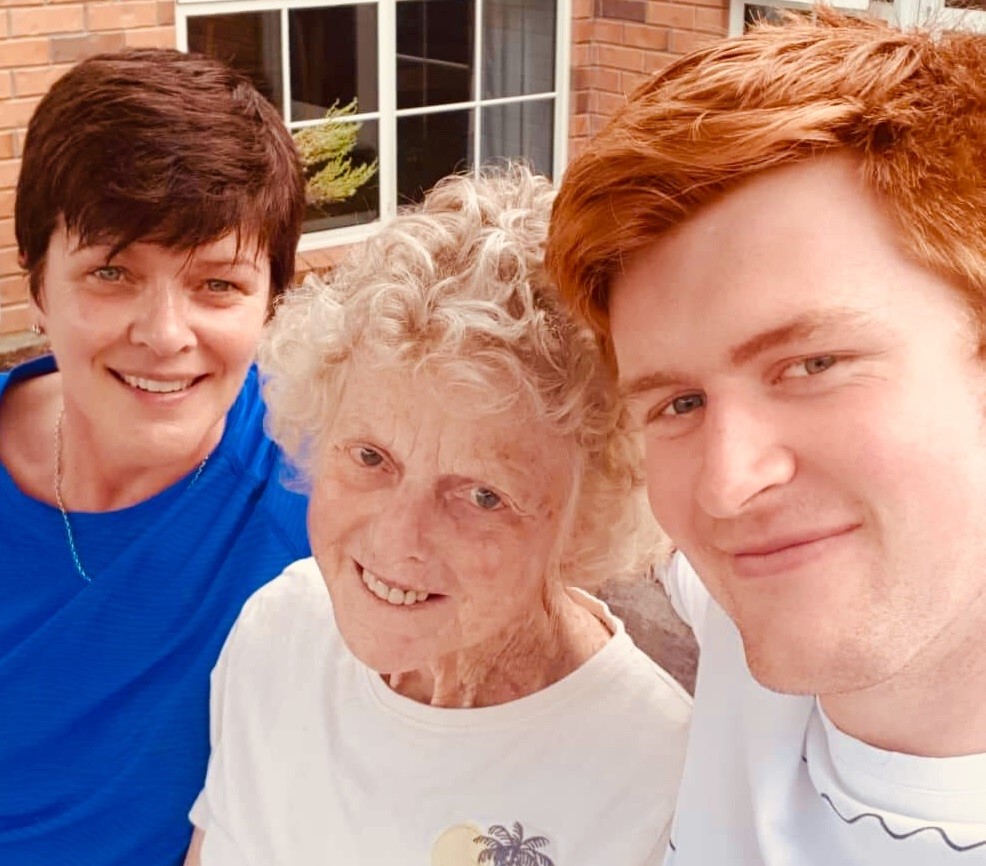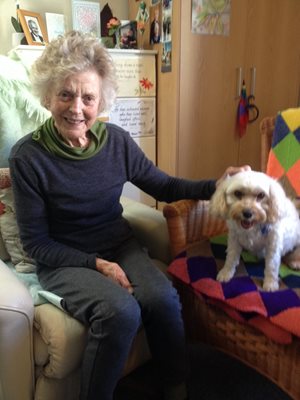Bronwyn’s story

People still think of dementia as a simple memory issue. Can they remember you? Can they remember your name? But it’s far more complex and goes deeper than that.
Our memory affects everything we do in life. How we eat, how we speak, how we walk. Dementia changes every aspect of a person’s life.
I was first confronted with dementia in 2004, when my father was diagnosed with Alzheimer’s disease, the most common form of dementia. Now, 14 years later, I also care for my mum who has vascular dementia.
I look at her, and even though she’s in care, she’s exceptionally lonely, confused, and lost. But on the other hand, it doesn’t take much to make her smile. She just needs someone to sit with her and read a book, or something else that’s simple like a leaf to look at or a flower to smell, then she’s quite happy.

I visit her each day but, understandably, such a commitment isn’t as simple for fellow family and friends.
From my experience, dementia is a disease most people can’t get their head around. It’s not something you can physically see, and people just can’t relate to that. I firmly believe there is still stigma, fear, discrimination and misunderstanding associated with dementia.
The mum I knew and loved has all but disappeared; her personality traits and characteristics that made her who she was.
She still looks the same, but there’s nothing else that resembles her. Although dementia has robbed her of so much, one thing that never goes away are emotions. People still need to be loved, they can and do still feel sad, lonely and confused – however they can also feel happy, content and a valued person in our community.
I visit mum in the morning, and then often later in the day, she won’t remember I was there earlier. I know that in that moment, she will be happier than if I hadn’t have gone.
When I chat with other residents, their eyes light up and they smile, and in that moment, they feel good. People with dementia live in the moment. They often can’t look forward or back, but they can still enjoy the present moment.
That’s why the connections and friendships are so important and why people should keep visiting.
It doesn’t have to be complicated, it can be something as simple as bringing in some flowers, a newspaper, or even a collection of leaves.
I know that coming to terms with dementia, visiting a dementia unit, or learning about the condition and its impacts on loved ones, friends and family can be a daunting experience. That’s why I believe Alzheimers NZ’s Dementia Friends programme is hugely beneficial.
Being able to link up with somebody, like a Dementia Friend, can help people realise that those living with dementia are just normal people who can’t express themselves and communicate in the way they used to.
Being a Dementia Friend doesn’t mean giving up your life.
It can be as easy as sitting with someone, whether it be in their own home or a care facility, and just chatting to them, or going for a drive or a walk outside.
Even the smallest of actions can make a big difference.
Best of all, the programme is helping others get their head around the condition, whether they have a personal connection with dementia or not.
Dementia Friends is designed to engage Kiwis from all walks of life, right across the country to help raise awareness, increase understanding and acceptance of people with dementia and to reduce stigma and discrimination. To date, over 3,000 people have signed up.
By joining us and becoming a Dementia Friend, you will be helping to make New Zealand a kinder place for people living with dementia.
Bronwyn Donald

